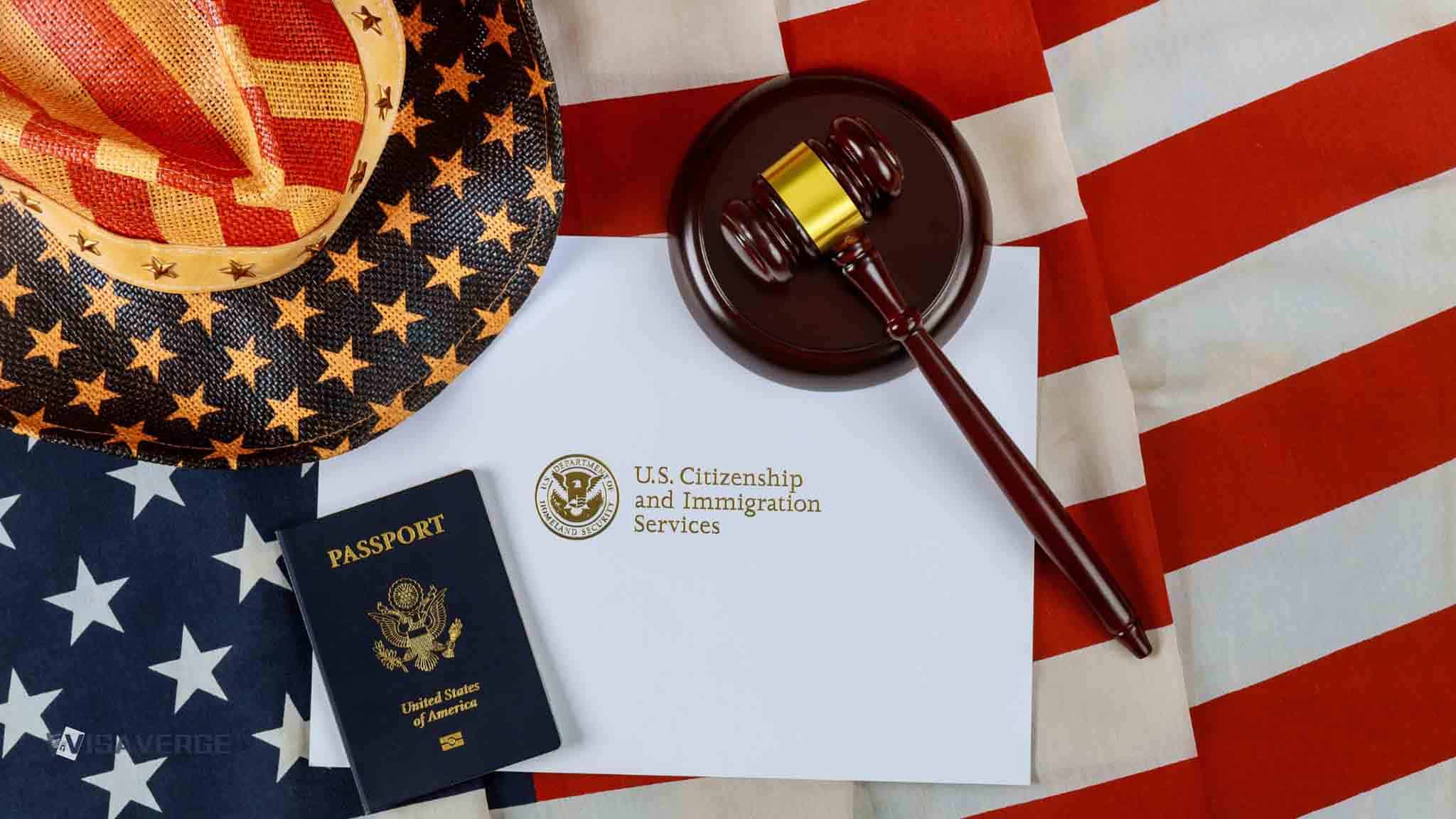Key Takeaways
• EB-2 NIW requires no minimum publications or citations for petition approval by USCIS.
• USCIS evaluates quality, impact, and national importance of work on a case-by-case basis.
• Expert letters and evidence of real-world impact strengthen EB-2 NIW petitions.
The EB-2 National Interest Waiver (NIW) is a popular immigration pathway for highly skilled professionals who want to live and work in the United States 🇺🇸. Many applicants wonder if there is a minimum number of publications or citations needed to qualify for the EB-2 NIW. This is a common question, especially among researchers, scientists, and academics. However, the answer is not as simple as a fixed number. The United States Citizenship and Immigration Services (USCIS) uses a flexible, case-by-case approach when reviewing these petitions.
This guide explains what the EB-2 NIW is, who qualifies, what evidence is important, and how USCIS reviews applications. It also covers practical steps for applicants, real-world examples, and expert advice. By the end, you’ll have a clear understanding of how to build a strong EB-2 NIW case—even if you don’t have a long list of publications or citations.

What Is the EB-2 NIW?
The EB-2 NIW is a special category within the broader EB-2 employment-based immigrant visa. The EB-2 is for people who have an advanced degree (master’s or higher) or who have exceptional ability in their field. The National Interest Waiver (NIW) part means that the applicant can ask USCIS to “waive” the usual job offer and labor certification requirements. In other words, you don’t need a specific employer to sponsor you if you can show that your work is important to the United States 🇺🇸 as a whole.
Key Points:
– EB-2: For people with advanced degrees or exceptional ability.
– NIW: Waives the need for a job offer and labor certification if your work benefits the country.
Who Qualifies for the EB-2 NIW?
To qualify for the EB-2 NIW, you must meet two main sets of requirements:
1. EB-2 Basic Requirements
You must show one of the following:
– Advanced degree: A master’s degree or higher, or a bachelor’s degree plus at least five years of progressive work experience in your field.
– Exceptional ability: A level of skill and recognition that is much higher than most people in your field.
2. National Interest Waiver Requirements
You must show that:
– Your work has national importance and benefits the United States 🇺🇸.
– You are well positioned to advance your work in the U.S.
– It would be beneficial to the U.S. to waive the job offer and labor certification requirements.
USCIS uses a “holistic” approach, meaning they look at the whole picture, not just one part of your background.
Is There a Minimum Number of Publications or Citations?
No, there is no official minimum number of publications or citations required for a successful EB-2 NIW petition. USCIS does not set a specific number in its rules or policy updates. Instead, officers look at the overall quality and impact of your work.
What does this mean for you?
– You do not need to have published a certain number of papers or have a set number of citations to qualify.
– USCIS cares more about the importance and influence of your work than about raw numbers.
How Does USCIS Evaluate EB-2 NIW Petitions?
USCIS officers review each petition on a case-by-case basis. They look for evidence that shows you meet the requirements. Here’s what they consider:
1. Quality and Impact Over Quantity
- A few highly influential publications can be more persuasive than many lesser-known ones.
- Awards, patents, media coverage, and expert letters can also show your impact.
2. Expert Letters
- Letters from recognized experts in your field are very important.
- These letters should explain why your work matters, how it has helped others, and why it is important for the United States 🇺🇸.
- Expert letters help USCIS understand the real-world value of your work, not just the numbers.
3. Other Evidence
- Citations: Show that other experts use your work.
- Awards and Honors: Prove recognition by your peers.
- Patents: Show innovation and practical use.
- Media Coverage: Demonstrates public interest or impact.
- Evidence of Adoption: Proof that your work is being used in the U.S.
4. Narrative and National Importance
- Your petition should tell a clear story about why your work matters to the country.
- Connect your achievements to U.S. national priorities, such as economic growth, public health, or technology.
What Evidence Should You Include?
While there is no set minimum, strong EB-2 NIW petitions usually include a mix of the following:
- Publications: Articles in respected journals, conference papers, or books.
- Citation Records: Proof that others in your field reference your work.
- Expert Letters: At least three to five letters from well-known professionals in your field.
- Awards and Honors: National or international recognition.
- Patents or Inventions: Proof of innovation.
- Media Coverage: News articles or interviews about your work.
- Evidence of Impact: Data or stories showing how your work has helped people or solved important problems.
Tip: Focus on the quality and influence of your evidence, not just the number of items.
How to Prepare a Strong EB-2 NIW Petition
1. Gather Documentation
Start by collecting all documents that show your qualifications and the impact of your work. This includes:
– Diplomas and transcripts
– Letters from employers
– Copies of publications and citation reports
– Awards, patents, and media articles
– Expert letters
2. Build a Clear Narrative
Write a personal statement or cover letter that explains:
– What you have achieved
– Why your work is important for the United States 🇺🇸
– How your work fits into national priorities
3. File Form I-140
The main form for the EB-2 NIW is Form I-140, Immigrant Petition for Alien Worker. You must submit this form with all your supporting evidence.
4. Respond to Requests for Evidence (RFEs)
Sometimes, USCIS will ask for more information. This is called a Request for Evidence (RFE). If you get an RFE, respond quickly and provide any missing documents or updated evidence.
Real-World Example: Two Applicants
Let’s look at two sample cases to see how USCIS might review their EB-2 NIW petitions.
Applicant A: Many Publications, Low Impact
- Has published 20 papers in small journals.
- Few citations.
- No major awards or expert letters.
- No clear link to U.S. national priorities.
Possible Outcome: USCIS may not be convinced that this work is important for the country, even with many publications.
Applicant B: Fewer Publications, High Impact
- Has published 5 papers in top journals.
- Work is cited by leading experts.
- Holds a U.S. patent that is used by American companies.
- Has strong expert letters explaining the national importance of the work.
Possible Outcome: USCIS is more likely to approve this petition, even with fewer publications, because the impact and national benefit are clear.
What Happens After Filing?
After you file Form I-140 and your evidence, USCIS will review your case. The process usually includes:
- Receipt Notice: USCIS sends you a notice that they received your petition.
- Initial Review: Officers check if you meet the basic requirements.
- Detailed Review: Officers look at your evidence and narrative.
- Request for Evidence (if needed): You may be asked for more information.
- Decision: USCIS approves or denies your petition.
If approved, you can move forward with your green card application.
How Long Does the Process Take?
- Preparation: 2-6 months to gather documents and write your petition.
- USCIS Review: 6-12 months, depending on the workload and your case.
- RFEs: If you get an RFE, responding quickly can help speed up the process.
What If You Don’t Have Many Publications or Citations?
Don’t worry if you don’t have a long list of publications or citations. Focus on showing:
– The importance of your work to the United States 🇺🇸.
– How your work has been adopted or used in the country.
– Strong expert letters that explain your impact.
– Any awards, patents, or media coverage that show recognition.
As reported by VisaVerge.com, immigration attorneys often say that a few strong pieces of evidence, combined with a clear story about national benefit, can be more effective than a long list of less important achievements.
What Do Experts Say?
Immigration lawyers and experts agree:
– Quality matters more than quantity.
– A strong narrative and expert support are key.
– Connect your work to U.S. national needs, such as technology, health, or the economy.
USCIS policy updates, including those from January 2025, confirm that there are no numeric thresholds for publications or citations. Officers are trained to look at the whole case, not just numbers.
Common Mistakes to Avoid
- Focusing only on numbers: Don’t just list publications or citations. Explain why your work matters.
- Weak expert letters: Make sure your letters are from respected experts and clearly explain your impact.
- Ignoring the national interest: Always connect your work to U.S. priorities.
- Missing documents: Double-check that you include all required forms and evidence.
Where to Find Official Information
For the most accurate and up-to-date information, visit the USCIS EB-2 NIW official page. This page explains the requirements, process, and latest policy updates.
You can also find instructions for Form I-140, which is the main form for this process.
Summary Table
| Aspect | Details |
|---|---|
| Minimum publications | No official minimum number required |
| Minimum citations | No official minimum number required |
| Key evaluation factors | Advanced degree or exceptional ability; national importance; quality and impact of work |
| Critical evidence | Publications, citations, expert letters, awards, media coverage, economic impact analysis |
| USCIS policy updates | No numeric thresholds; case-by-case holistic review (latest update Jan 2025) |
| Practical advice | Focus on strong narrative and expert endorsements over quantity |
Practical Steps for Applicants
- Assess your qualifications: Do you have an advanced degree or exceptional ability?
- Gather evidence: Collect documents that show your achievements and impact.
- Get expert letters: Ask respected professionals to write letters about your work.
- Write your narrative: Clearly explain why your work matters to the United States 🇺🇸.
- File Form I-140: Submit your petition with all supporting evidence.
- Respond to RFEs: If asked, provide more information quickly.
- Check official resources: Use the USCIS EB-2 NIW page for updates.
Final Thoughts
The EB-2 NIW is a flexible and powerful way for talented professionals to move to the United States 🇺🇸. While publications and citations are helpful, there is no minimum number required. Focus on building a strong case that shows the national importance of your work, supported by high-quality evidence and expert endorsements. By following these steps and using official resources, you can give yourself the best chance of success.
If you need personalized advice, consider speaking with an immigration attorney who specializes in EB-2 NIW cases. They can help you assess your strengths and prepare a compelling petition tailored to your unique background and achievements.
Learn Today
EB-2 NIW → An employment-based visa waiving job offer requirements if work benefits U.S. national interest.
USCIS → United States Citizenship and Immigration Services, agency managing immigration and visa petitions.
Form I-140 → Main petition form filed to request immigrant worker classification under EB-2 NIW.
Request for Evidence → A USCIS notice asking for additional documentation to support a petition.
National Interest Waiver → Exemption allowing applicants to forgo labor certification if work benefits the nation.
This Article in a Nutshell
The EB-2 NIW lets skilled professionals apply for a green card by proving that their work benefits the U.S., without needing a job offer. USCIS focuses on quality and national importance over publication numbers. A compelling narrative and expert endorsements increase approval chances in this flexible immigration path.
— By VisaVerge.com













